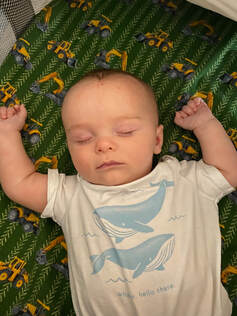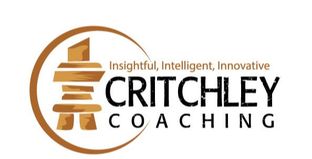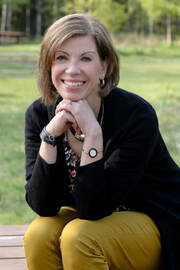
It's important we do place them.
I am no expert on Indigenous history or on the culture of Indigenous Peoples. I do know something about feelings and what we do, or do not do with them.
As usual, when I have a complex matter on my mind, the thoughts seem to run around and around until they find a way to make some sense. In the matter of the fires, burning the churches certainly does not erase the atrocities occurring under their power. And yet, one can certainly understand how this act of burning could be a symbol of taking back power from the church, and of seeking some form of retribution upon it. At the same time, people from the Indigenous communities have found some comfort in these buildings, so more trauma is inflicted by their destruction. Round and round my thoughts go as they try to find a place to land, as I try to find somewhere to put them.
Correction, as I find somewhere to place them.
To put or to place? How in the world does my thinking about the discovery of the unmarked graves, the generational trauma suffered by our First Nations People, and the violence appearing in the form of burning churches, end up with my thinking about whether we should put or place things?
I suspect it’s because we’ve put these acts of cruelty, these injustices, out of our collective minds for most of our history. Perhaps it’s time we place them gently where we can see them, remember them, and make a change for our future.
When I think of putting something somewhere, I think of setting it down. Unburdening myself from it. Not necessarily setting it in its proper place, but setting it somewhere where I might deal with it later. When we have a group of people over for dinner (we really did used to do this!), after the main course, a few people often help with clearing the table before the dessert is served or after the meal is complete. No doubt, the host for the evening might be heard to say, when asked where things should go, “Just put it on the counter for now.”
The same might be heard when a delivery is made to an office (this really did used to happen too!). “Just put it on the desk. I’ll deal with it later.” When we put things down, we do so with little thought. Often our putting is in a temporary place, one where the object doesn’t really belong. It’s good enough. We’ll deal with it when we get around to it.
We do the same with our feelings. We often put them where they don’t belong. We are careless with our putting. We don’t want to deal with tough feelings, or the thoughtfulness they deserve, so we choose to put them somewhere convenient, just so they are off our shoulders. We might come home from work having had a rough meeting, or perhaps after being caught up in a traffic jam, and we are out of sorts. It doesn’t take much for us to make a hurtful comment to someone in our inner circle, someone who had nothing to do with our meeting or traffic. We put our bad feelings in the first available place. Usually on someone else’s shoulders. We pretend we’ve gotten rid of it. How far from the truth this is. Almost always, when we reflexively put things and feelings somewhere, it’s either because we have developed a habit of putting them there or because we don’t want to think about them. What a better world we could have if, instead of putting, we spent a bit of time carefully placing things. Placing words, placing feelings, placing things, placing people. Placing feels right. It feels on purpose. It feels gentle.
This week I’ve been thinking about whether I am ‘putting’ or ‘placing’. There is, of course, a time for putting. There are a lot of mundane things in our lives that need putting. However, as I’ve stopped to decide whether to put or place, I’ve given myself time to really ponder the worth of what I am considering. The more valuable a thing is to me, the more gently I wish to place it. I’m taking care to place my feelings, my footsteps and my words. I took care of little Andy for a few hours on Tuesday, and I can say with great confidence, I took time to gently place him in his little bassinette for his nap, I gently placed him on my shoulder to walk around with him, and I gently placed him on my lap to snuggle him.
How I wish those small Indigenous children had never been taken and put into residential schools. How I wish they could have remained in their homes, in their communities, and with their families where they would have been placed gently at the feet of their elders as they learned the traditions of their people and the joy of community. As I’ve struggled with my own feelings about this, the words of Chief Cadmus Delorme of Cowessess First Nation spoken during his interview with Ian Hanomansing, gave me some hope for a better path forward.
‘We all inherited this, nobody today created residential schools, nobody today created the Indian Act, nobody today created the 60’s scoop. We all inherited it and we have to acknowledge that people are healing and people are hurting. Let’s do something about it!’ ~ Chief Cadmus Delorme, Cowessess First Nation.
One thing we can do is think about what we are placing, and where and how we are placing it. I hope we will all take time to place our footsteps gently as we walk toward healing, our hearts in an open position to encourage understanding, our words with love and compassion, and that we will provide a place for healing for all Canadians.
My inquiry for you this week is, ‘Where and how shall I place this?’
Note: I'm taking the summer away from posting my blog. If I happen to have a moment of great insight, you may hear from me, but otherwise, I'll be back at the beginning of September. Stay well.
Elizabeth is a certified professional Leadership Coach, and the owner of Critchley Coaching. She is the founder and president of the Canadian charity, RDL Building Hope Society. She works with corporations, non-profits and the public sector, providing leadership coaching. She creates and facilitates custom workshops for all sizes of groups. She has particular expertise in facilitating Strategic Plans for organizations. Contact Elizabeth to learn how to gently place.


 RSS Feed
RSS Feed